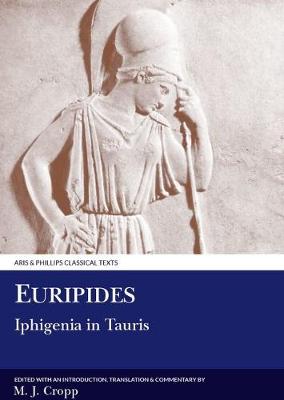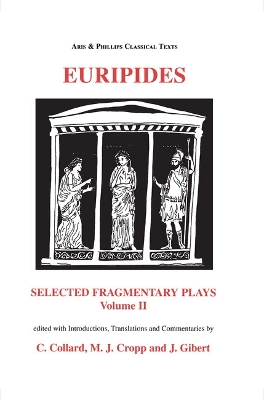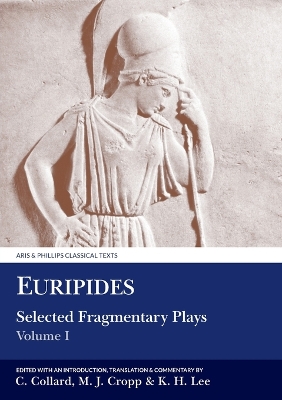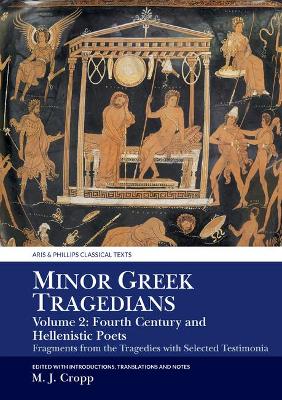Aris & Phillips Classical Texts
4 total works
Euripides: Selected Fragmentary Plays Vol II
by Christopher Collard, Martin J. Cropp, and J. Gibert
Antiope, Hypsipyle, Archelaus (415 to about 407 B.C.).
Euripides: Selected Fragmentary Plays I
by Christopher Collard, Martin J. Cropp, and K.H. Lee
Minor Greek Tragedians, Volume 2: Fourth-Century and Hellenistic Poets
by Martin J. Cropp
This is the second volume of a collection which includes all the significant remains of tragedies produced by the contemporaries and successors of the three classic Greek tragedians (Aeschylus, Sophocles and Euripides). Greek texts and sources are accompanied by English translations, related historical information, detailed explanatory notes and bibliographies. Volume Two includes more than a dozen poets of the fourth and early third centuries (Astydamas, Carcinus, Chaeremon, Theodectas, Moschion and others), the Alexandrian Pleiad, Ezechiel's Exagoge (a tragedy based on the biblical Exodus), and some anonymous material derived from ancient sources or rediscovered papyrus texts.
Remnants of the satyr-plays of this period are included in a separate Aris & Phillips Classical Texts volume, Euripides Cyclops and Major Fragments of Greek Satyric Drama, edited by Patrick O'Sullivan and Christopher Collard (2013).



